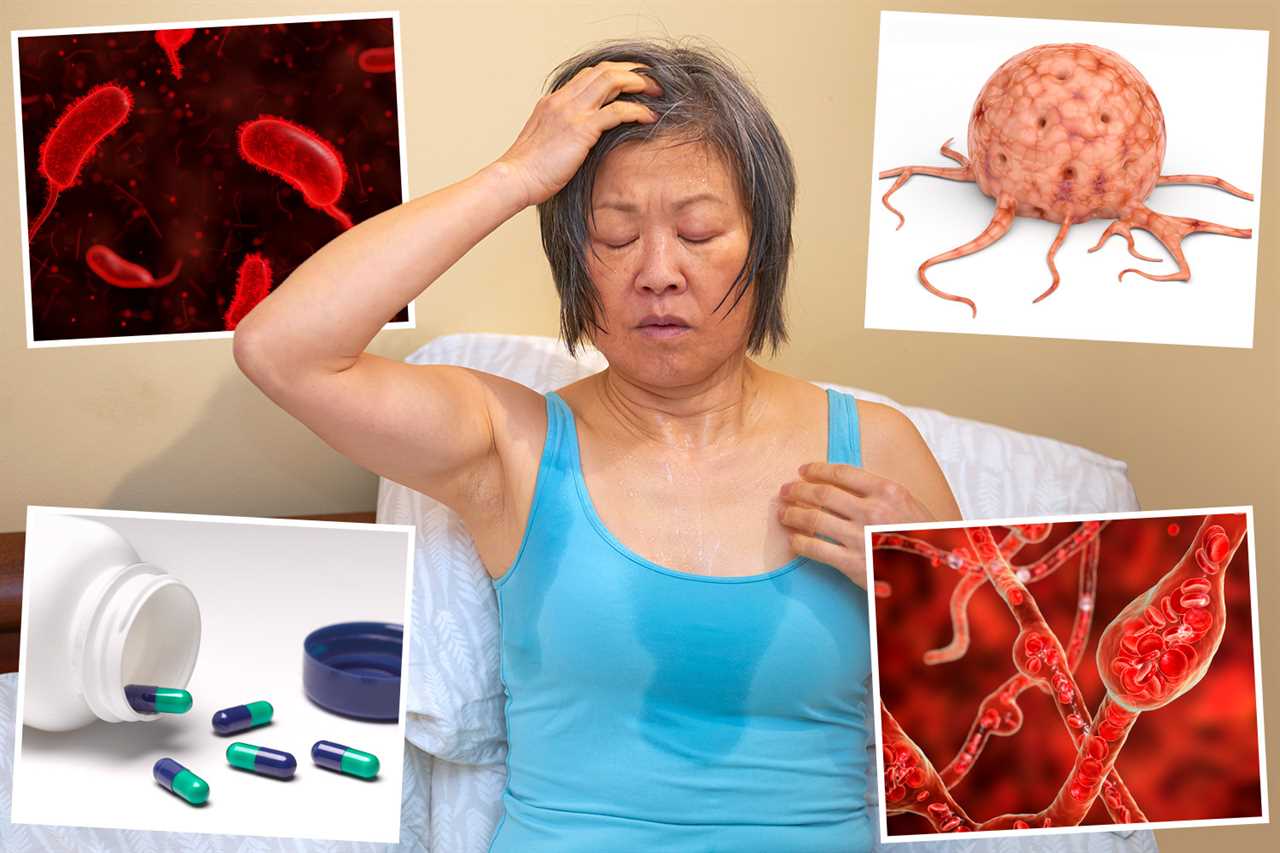
Sweating: A Normal Cooling System
Sweating is a natural and necessary function of the body's cooling system, helping to maintain the optimal temperature for all organs to function effectively.
When Night Sweats are Cause for Concern
While sweating during sleep is normal, waking up in the middle of the night with soaked sheets can be a sign of an underlying condition. Night sweats are episodes of intense sweating that occur during sleep, often triggered by changes in the body's internal temperature.
1. Menopause: A Common Culprit
Menopause is a major cause of night sweats, affecting around 80% of women going through this natural stage in life. Fluctuating hormone levels, particularly estrogen, are thought to trigger hot flashes and night sweats by affecting the hypothalamus, the part of the brain that regulates temperature.
2. 'Male Menopause': Hormonal Imbalance in Men
While less common, hormonal imbalances can also cause night sweats in men. Low testosterone levels, known as hypogonadism, can lead to hot flashes in up to 80% of affected men. This condition can be present from birth, causing delayed puberty and small testes, or it can develop later in life, especially in men who are obese or have type 2 diabetes.
3. Infections, Including HIV
When the body is fighting an infection, internal temperature can rise, triggering sweating as a way to cool down. While minor infections like the common cold can cause sweating, serious diseases like HIV can also lead to night sweats. HIV damages the immune system, making it harder for the body to fight infections. Night sweats in HIV are typically accompanied by other symptoms such as fever, weight loss, and joint pain.
4. Cancer: Hodgkin's and Non-Hodgkin's Lymphoma
Night sweats can also be a symptom of certain types of cancer, specifically Hodgkin's and non-Hodgkin's lymphoma. These cancers affect white blood cells, which are part of the body's immune system. However, night sweats are rarely the only symptom, as these diseases typically present with painless swelling in lymph nodes.
5. High Blood Pressure and Sleep Apnea
For those with obstructive sleep apnea, night sweats can be a sign of high blood pressure. Sleep apnea is a condition where the airway is repeatedly blocked during sleep, causing loud snoring. Studies suggest that about a third of people with sleep apnea experience night sweats regularly. The exact connection between night sweats and high blood pressure is still unknown, but researchers believe there is a link.
6. Medications: SSRIs and Hormone Replacement Therapy
Certain medications can also cause night sweats. Selective serotonin reuptake inhibitors (SSRIs), commonly used to treat depression, and hormone replacement therapy for menopause are known culprits. These drugs affect the part of the brain responsible for regulating body temperature and sweating. Additionally, the abuse of party drugs and alcohol can also increase the risk of night sweats in a similar way as prescribed medications.
In conclusion, night sweats can be a sign of various underlying conditions, ranging from hormonal imbalances to infections and even cancer. If you experience persistent night sweats or are concerned about your symptoms, it is important to consult a healthcare professional for proper diagnosis and treatment.
Did you miss our previous article...
https://trendinginthenews.com/cancer/half-of-parents-unaware-of-cancer-symptoms-in-children-new-study-finds






